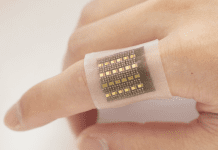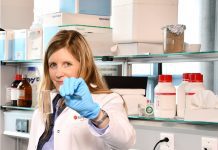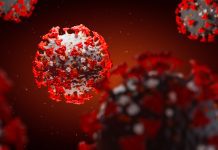Healthcare Innovation Related News
How head-mounted wearables are transforming the face of healthcare
RealWear introduces its assisted reality head-mounted wearables and how the revolutionary technology signifies a paradigm shift in the healthcare sector.
Extended reality and wearables continue...
Supporting medicine use in older people with sensory impairment
The University of Strathclyde has launched a free online course to support medicine use in elderly patients with sensory impairment.
The MOOC (Massive Online Open...
Understanding how intracranial pressure causes glaucoma
Researchers have found evidence that intracranial pressure plays an important role in the development of glaucoma, creating a pathway for new treatments.
A recent study,...
Using AI to accelerate drug discovery
Artificial Intelligence (AI) can potentially reduce the cost and speed-up drug discovery, according to researchers at the University of Sheffield and AstraZeneca.
The new AI...
The University of Oxford trials bioelectronic implant for incontinence treatment
Revolutionary bioelectrical therapy has been trialled in participants requiring incontinence treatment.
Amber Therapeutics, a company spun out from the University of Oxford in 2021, applies...
Point-of-care testing for infectious diseases in emergency settings
Inflammatix spoke with Andy Breakell, an emergency medicine consultant at the Royal Liverpool Hospital and Tony Cambridge, lead biomedical scientist at Plymouth Hospital about...
Oxford University leading research on programmable nucleic acid drugs
A consortium led by the University of Oxford researchers has been awarded £8m of funding to unlock the potential of programmable nucleic acid drugs.
Programmable...
New affordable device for fixing broken bones trialled in low-income countries
Imperial College researchers have developed a low-cost, easy-to-manufacture stabiliser for broken bones in place with metal pins or screws attached to a surrounding metal...
New artificial pancreas technology recommended in England and Wales
Around 105,000 people struggling with type 1 diabetes could benefit from artificial pancreas technology.
People who are struggling to manage their type 1 diabetes could...
NHS Digital launch online community for healthcare software professionals
The new developer community will provide quick and easy access to important information and tools for healthcare software professionals.
NHS Digital has created an online...
UCL team gain access to the most powerful supercomputer for drug discovery
A UCL-led team of researchers are using the world’s first exascale supercomputer to identify a shortlist of potential new drugs for diseases.
The supercomputer called...
Understanding how epigenetics can improve cancer treatment
Researchers from the University of Barcelona have explained the role epigenetics can play in clinical cancer treatment.
In the early 1980s, methylation was discovered and...
Using machine learning to improve prosthetic limbs
Researchers from the University of Erlangen-Nuremberg are investigating how intelligent prosthetic limbs can be made more reliable using machine learning.
Researchers are trying to find...
Can astrophysics measure the body clock in hospital patients?
A team from the University of Manchester have adapted a technique originally developed to analyse stars, to measure the human body clock.
Astrophysics is used...
Stem cell innovation provides new hope for congenital heart disease
Researchers at the University of Bristol have developed ‘stem cell plasters’ that could change the future of treating congenital heart disease in children.
Heart defects...
A wearable skin patch monitors haemoglobin levels in deep tissues
A team of engineers have designed a wearable skin patch using a photoacoustic sensor to help clinicians monitor haemoglobin levels.
Engineers from the University of...
Researchers create ‘plaster’ to seal internal wounds
An innovative patch to seal internal wounds and prevent dangerous leakages has been developed by researchers in Switzerland.
A team of researchers from Empa have...
Research suggests liver disease drug could prevent COVID-19
Scientists have identified an off-patent drug that could prevent COVID-19 infection and be used to tackle future variants.
A team of scientists from the University...
The overlooked factor of disinfectant products
Infection prevention & control (IPC) is an evidence-based practice with conversations regarding topics like surface disinfection products, hand hygiene and patient isolation.
IPC thought leaders...
Defence Therapeutics to begin phase 1 trial for new anti-cancer treatment
Defence Therapeutics Inc., a Canadian biopharmaceutical company specialising in the development of immune-oncology vaccines and drug delivery technologies, is pleased to announce the successful...





















